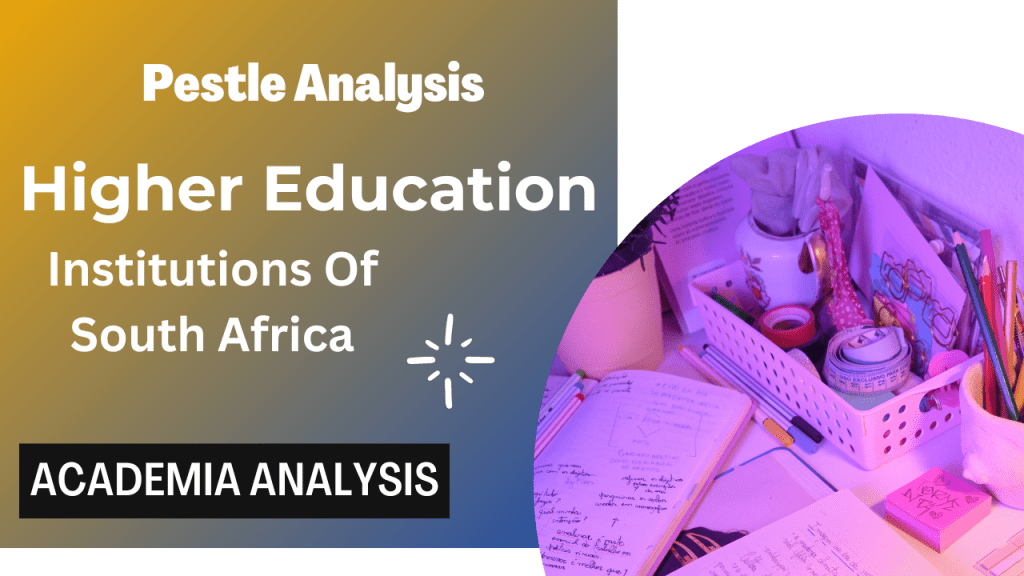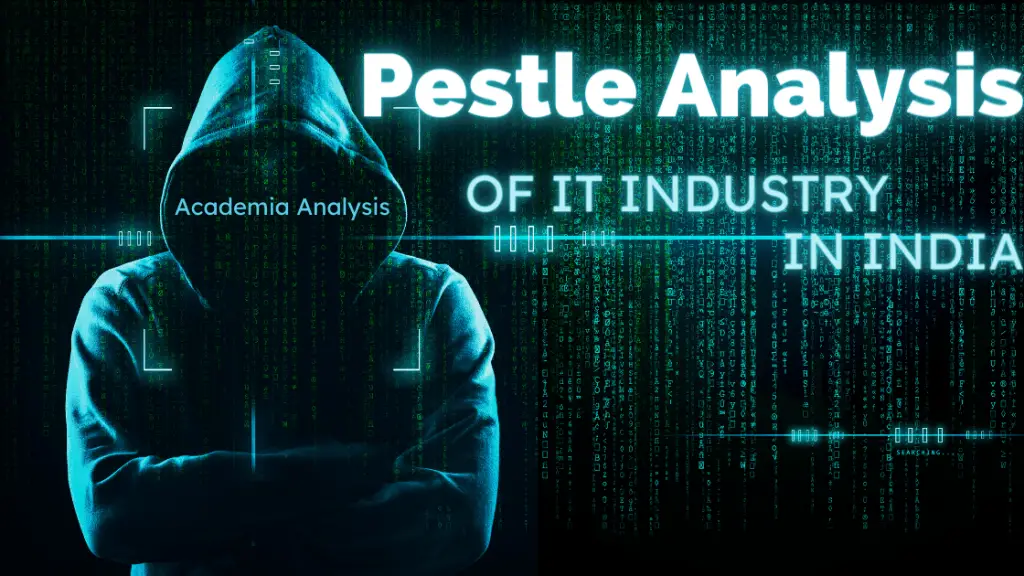As an educational institution, you need to be prepared for changing conditions. This is particularly true if you are planning to expand your curriculum and services. You will need to be able to adapt to changes in the economic, social, and political climate. A pestle analysis will help you do this. It will show you where you are strong and weak. In addition, it will help you find areas that need improvement.
A PESTLE analysis is a tool used to understand the macro-environment in which an organization operates. It stands for Political, Economic, Sociocultural, Technological, Legal, and Environmental factors. Here is a PESTLE analysis for higher education institutions in South Africa:
Political factors:
Political factors can have a significant impact on higher education institutions in South Africa. The government plays a significant role in the higher education sector through policies and funding, and changes in government or political instability can affect the quality and accessibility of higher education. Higher education institutions may also be influenced by relationships with other countries, especially in terms of international student enrollment and collaboration. Political factors can also include issues such as censorship, freedom of speech, and academic freedom, which can impact the operations and reputation of higher education institutions.
- The government plays a significant role in the higher education sector through policies and funding.
- Political instability and corruption can affect the quality and accessibility of higher education.
- Relationships with other countries, especially in terms of international student enrollment and collaboration, can also be influenced by political factors.
Economic factors:
Economic factors can have a significant impact on higher education institutions in South Africa. The state of the economy, including factors such as unemployment rates and GDP, can affect the demand for higher education and the ability of students to afford it. Funding from the government and other sources, such as tuition fees and donations, can also be influenced by economic conditions. Higher education institutions may also be affected by the cost of operating and maintaining facilities, as well as the cost of hiring faculty and staff. Economic factors can also include issues such as inflation, exchange rates, and the availability of financing for students and institutions.
- The state of the economy, including factors such as unemployment rates and GDP, can impact the demand for higher education and the ability of students to afford it.
- Funding from the government and other sources, such as tuition fees and donations, can also be influenced by economic conditions.
Sociocultural factors:
Sociocultural factors can have an impact on higher education institutions in South Africa. The demographics of the country, including the age distribution and cultural diversity, can affect the demand for higher education and the types of programs offered. Attitudes towards education, including the value placed on it and the perceived benefits, can also be important sociocultural factors. Higher education institutions may also be influenced by social trends and changes in cultural norms, as well as by issues such as diversity, inclusion, and equity. Sociocultural factors can also include the availability and accessibility of education for disadvantaged groups, such as those living in rural areas or from low-income families.
- The demographics of the country, including the age distribution and cultural diversity, can affect the demand for higher education and the types of programs offered.
- Attitudes towards education, including the value placed on it and the perceived benefits, can also be important sociocultural factors.
Technological factors:
Technological factors can have a significant impact on higher education institutions in South Africa. The adoption and integration of technology in higher education can impact the delivery of programs and the types of skills that students need to learn. Higher education institutions may need to invest in technology and training to ensure that students have access to the tools and resources they need to succeed. The availability and accessibility of technology can also be important factors for institutions and students. Technological factors can also include issues such as cybersecurity, data privacy, and the impact of technology on the labor market and the economy.
- The adoption and integration of technology in higher education can impact the delivery of programs and the types of skills that students need to learn.
- The availability and accessibility of technology can also be important factors for institutions and students.
Legal factors:
Legal factors can have an impact on higher education institutions in South Africa. Higher education institutions must adhere to a range of laws and regulations, including those related to accreditation, student rights, and employment. Changes to these laws and regulations can have significant impacts on the operations of higher education institutions. Legal factors can also include issues such as intellectual property, contracts, and liability. Higher education institutions may need to ensure that they are compliant with relevant laws and regulations, and may also need to consider the legal implications of their actions and decisions.
- Higher education institutions in South Africa must adhere to a range of laws and regulations, including those related to accreditation, student rights, and employment.
- Changes to these laws and regulations can have significant impacts on the operations of higher education institutions.
Environmental factors:
Environmental factors can have an impact on higher education institutions in South Africa. Environmental sustainability is increasingly becoming a concern for higher education institutions, and policies and practices related to the environment can affect their operations and reputation. Higher education institutions may need to consider issues such as energy consumption, waste management, and sustainability in their operations and decision-making. Natural disasters and other environmental events can also have impacts on higher education institutions, such as damage to facilities or disruptions to classes and activities. Environmental factors can also include issues such as climate change and the impact of human activity on the natural environment.
- Environmental sustainability is increasingly becoming a concern for higher education institutions, and policies and practices related to the environment can affect their operations and reputation.
- Natural disasters and other environmental events can also have impacts on higher education institutions.
Also Read: SWOT Analysis of Whitening Soap






